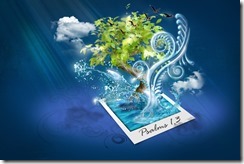What is the best bible translation to use?
This is a question that often comes up as people study the bible.
I remember the first time I realized that Jesus probably did not speak to the disciples in the same language in which they wrote the letters of the New Testament. Translation was already taking place, but I believe guided by the Holy Spirit. It was not as cut and dry as perhaps I once thought.
Translating from one language to another is not easy work.
Ken Schenck, Dean and Professor of New Testament at Wesley Seminary at Indiana Wesleyan University, writes:
“There is no one correct translation from one language to another. Look at an interlinear. The word order is different from one language to another. The possible range of meanings for words and phrases from one language to another is different, meaning that all translation involves interpretation. You should use multiple translations to get a better sense of the possible meanings and issues of the original. Fallacies: words do not have just one meaning (one meaning fallacy) or one core meaning that plays itself out in every instance of the word (lexical fallacy).” (http://kenschenck.blogspot.ca/2015/01/biblical-paradigm-shifts-1.html)
There is great challenge in translation, but not enough challenge we can’t understand it. We do need to have some grace for the challenge of translation.
I can only speak English, but my French speaking friends have informed me the difference in words used as one translates. For example, on products people are selling or printed material handed out by the city. In translating, one wants to point in the same direction, but one cannot translate word for word from one language to another.
Canadian Bible Society Translation Director, Hart Wiens, gives some pointers as well:
He writes:
“ No one translation that is perfect or best for everyone…”
“As one who has spent my life working in Bible translation I know how often it is impossible to find one way to render the rich and varied message of a Hebrew or Greek text in the Bible. For my own study and meditation, I enjoy reading the Bible in a variety of versions because I find that each one helps to bring the message to light and make it sparkle.”
The best bible translation is the one you pick up. Some will have more of a word for word (this is actually impossible given how translations work; . however some translations do their best.). Some translations are more of a thought for thought, while others paraphrase. I believe each translation has its place.
I grew up using the NIV and still often use that version even today. However, to be honest, that has more to do with tradition than anything else. I do find myself reading other translations in order to gain a better perspective on the bible.
As I close, this may be of interest to you. A quick guide to bible translations from the Canadian Bible Society in their magazine, “Word at Work” winter 2010 edition – http://www.biblesociety.ca/sites/default/files/WAW_Winter2010.pdf

 A hands-on-approach to developing the discipline of engaging the bible to guide your life.
A hands-on-approach to developing the discipline of engaging the bible to guide your life.